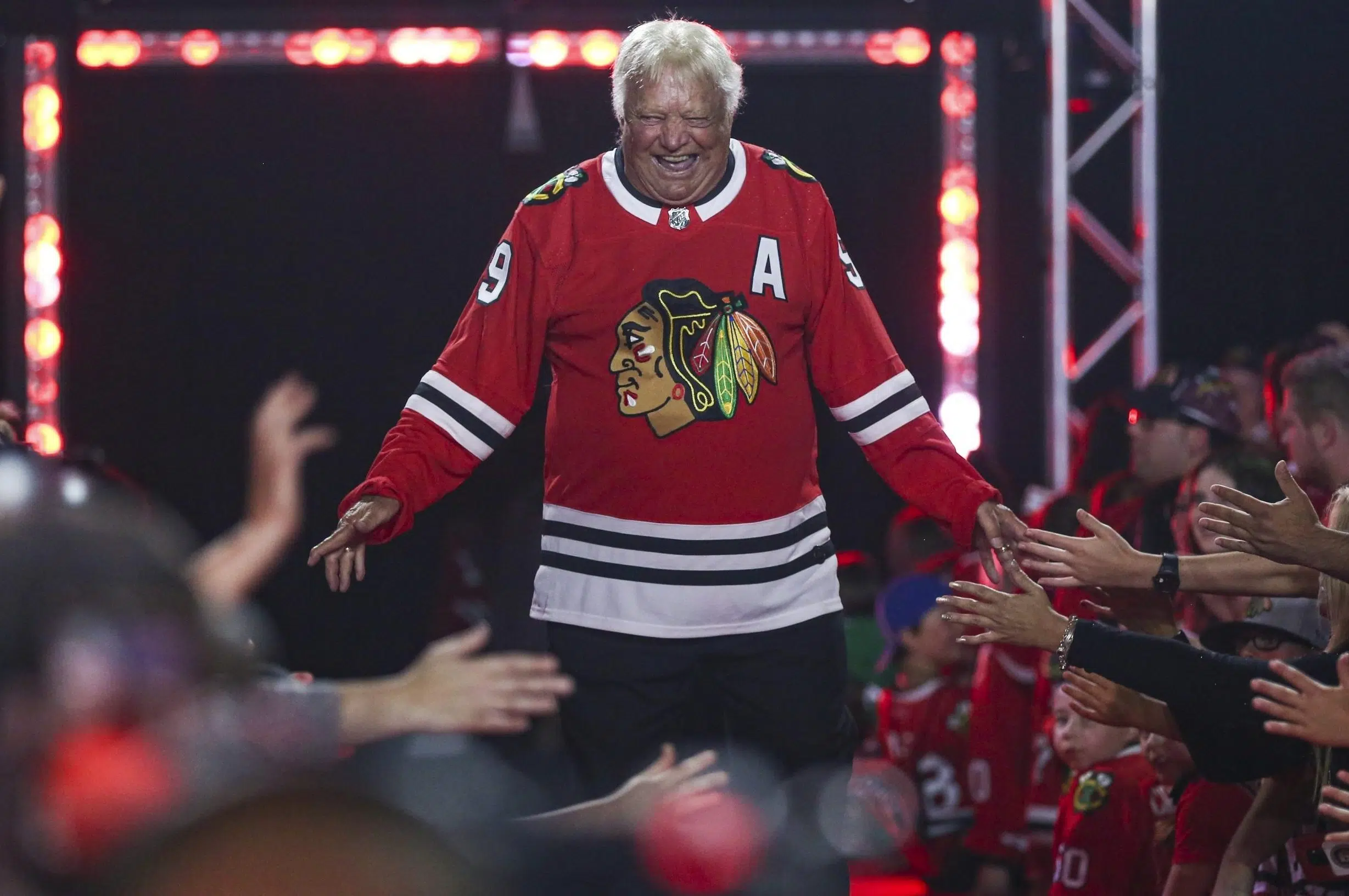The Golden Jet has passed away.
Hockey legend Bobby Hull — the first player to score more than 50 goals in an NHL season — died Monday at the age of 84.
The NHL Alumni Association is deeply saddened to learn that Bobby Hull has passed away at the age of 84.
Bobby began his NHL career with the @NHLBlackhawks in 1957. He would go on to play 15 seasons with the team, one season with Winnipeg, and another with Hartford, amounting.. pic.twitter.com/pOIioAgwd4
— NHL Alumni (@NHLAlumni) January 30, 2023
Hull had a 23-year playing career in the NHL and World Hockey Association, including stints with the Chicago Blackhawks (1957-72), Winnipeg Jets (1972-80) and Hartford Whalers (1980).
He won the Hart Trophy as the NHL’s most valuable player twice and was the NHL’s leading scorer three times. He helped Chicago win the Stanley Cup in 1961 and helped the Jets claim the Avco Cup as WHA champions in 1976 and ’78.
A left winger, Hull was a 10-time first-team NHL all-star and a second-team all-star twice.
Hull, known for his booming slapshot, led the NHL in goals seven times in his career. He scored 54 goals during the 1966 season to become the first NHLer to reach the 50-goal plateau.
He finished his NHL career with 610 goals and 1,170 points in 1,063 regular-season games and added 129 points, with 62 goals, in 119 playoff games.
He added 303 goals and 638 points in 411 WHA regular-season games.
While Hull was one of the greatest players of his generation, he wasn’t allowed to represent Canada in the 1972 Summit Series against the USSR. Canada’s team in that series included only NHL players — including Hull’s brother, Dennis — so Bobby and other WHA stars weren’t invited to participate.
Hull was inducted into the Hockey Hall of Fame in 1983. His No. 9 was retired by the Blackhawks that same year.
His son Brett Hull — nicknamed The Golden Brett — played in the NHL and scored 741 goals. The Hulls are the only father-and-son tandem to each score more than 50 goals in an NHL season and more than 600 NHL goals in their careers.
Another of Bobby’s sons, Bart, had a CFL stint with the Saskatchewan Roughriders.
Bobby Hull’s post-playing career featured some controversy, including comments he reportedly made about Adolf Hitler and allegations of domestic violence.
Until Bobby Orr, Bobby Hull was the biggest star of the 60s. A childhood friend idolized the Golden Jet. He approached him for an autograph without pen or paper. Hull pulled out a dollar bill and signed it for him. Off ice issues taint his legacy but an all time great on the ice. pic.twitter.com/eOqaTLSMte
— Chris Cuthbert (@CCpxpSN) January 30, 2023
Long-time Regina sports writer Darrell Davis watched Hull while Davis’ dad, Lorne, played in the NHL.
“Bobby Hull changed the game,” Darrell Davis said. “His image was tarnished later on because of allegations of spousal abuse and he decked a policeman who came to break up a family dispute, but you could never question his ability as a hockey player because he had that booming shot (and) huge personality and he really helped the WHA get started in the early ’70s.”
While Hull was known for his time with the Blackhawks, the most polarizing move of his career came when he decided to jump ship and join the WHA’s Jets. He moved to Winnipeg after being offered the opportunity to become the first hockey player to ever make more than $1 million in a season.
Davis recounted that move as a big deal for hockey on the prairies.
“That was massive because the NHL had such a firm grip on everybody, nobody was making any money. When you look at the salaries of Gordie Howe and what those guys were making, they were so underpaid compared to what they make now,” Davis explained.
“My dad played in the NHL and I know how little they made as salaries in that era and Bobby Hull, when the WHA came along, jumped at that chance (to make money). Finally the players (in the NHL) got more what they were worth and it was because of Bobby Hull.”
Davis feels the move gave hockey on the prairies some relevancy.
“When you think about hockey on the prairies, we had junior hockey and senior hockey, but we never had a pro team,” he said. “Winnipeg was as close as we were going to get to a pro team in Saskatchewan it seemed like at the time. The fact that they were there was so huge and the NHL did everything they could to keep him from playing.
“I know a few people who are still Winnipeg Jets fans because of the early stuff in the ’70s, but he did give credibility to the prairies as a potential place to play pro hockey.”
Gare Joyce wrote the book The Devil and Bobby Hull based on Hull’s life. Speaking to Jamie Nye on The Green Zone on Monday, Joyce called Hull an “influential” player in the game in the ’60s.
“I think in style of play, he was definitely influential. (On the) business side of the game, (he was) incredibly influential, probably more than anyone else in the history of the game. He was the face of the National Hockey League in the ’60s,” Joyce said. “He was five times on the cover of Sports Illustrated when nobody else (in the NHL) made more than a cameo appearance.
“In talking to people involved with the expansion process (in the NHL), they’ll tell you it was Hull who was a catalyst for getting the league to expand from six teams to 12.”
— With files from 980 CJME’s Shane Clausing











